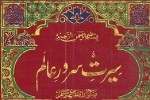
Reasoning Behind the Need for Prophethood of Muhammad (s.a.w)
-
Seerah
- at 27 September 2017
By Syed Abul A'ala Maududi
(Translated from the book "Seerat e Sarwar e Aalam ï·º", Chapter “Why Did the World Need Prophet Muhammad ï·º After Other Prophets?”)
ÙˆÙŽ اÙنَّ الَّذÙÙŠÛ¡Ù†ÙŽ اÙوۡرÙØ«Ùوا الۡكÙتٰبَ Ù…ÙÙ†Û¡Û¢ بَعۡدÙÙ‡ÙÙ…Û¡ Ù„ÙŽÙÙÙ‰Û¡ شَكّ٠مّÙÙ†Û¡Ù‡Ù Ù…ÙرÙيۡب٠î€
(42:14 part) Indeed those who were later made the heirs of the Book are in disquieting doubt about it.
It means: After the passage of the time of every Prophet and his closest followers when the divine Book reached the later generations, they did not receive it with faith and conviction but were involved in doubts and suspicions and confusions about it. There were many causes for this state of affairs, which can be easily understood by a study of the case of the Torah and the Gospel. The earlier generations have not conveyed both these Books to the later generations well preserved in their original state and in their original words and language. They mixed up the divine word in them with the human word in the form of their commentary, history, verbal traditions and juristic hair-splitting. They made their translations prevail until the original was lost and only the translations remained. Their historical authenticity also was ruined, so much so that nobody now can say with certainty that the Book in his hand is the same that the world had once received through the Prophet Moses or the Prophet Jesus (peace be upon them). Then their elders in the different periods of history initiated such discussions on religion, divinity, philosophy, law, physics, psychology and sociology and invented such systems of thought that the people were lost in them and it became impossible for them to decide as to which was the straight highway of the truth among the countless crooked ways. And since the divine Book did not exist in its original, reliable state, they could neither turn to any authority that could help them to distinguish the truth from falsehood.1
One should note that in Arabia the light of the true faith was first of all spread by the Prophets Hud and Salih (peace be upon them), who lived in the pre-historic age. They were followed by the Prophets Abraham and Ishmael, who lived 2,500 years before the Prophet Muhammad (peace be upon him). After them the last Prophet to be raised in Arabia before the Prophet Muhammad (peace be upon him) was the Prophet Shuaib (peace be upon him), who had passed about 2,000 years earlier.2
The People of Arabia Hoped for a Prophet
اَ قۡسَمÙوۡا بÙاللّٰه٠جَهۡدَ اَيۡمَانÙÙ‡ÙÙ…Û¡ لَـئÙÙ†Û¡ جَآءَهÙÙ…Û¡ Ù†ÙŽØ°Ùيۡرٌ لَّيَكÙÙˆÛ¡Ù†Ùنَّ اَهۡدٰى Ù…ÙÙ†Û¡ اÙØۡدَى الۡاÙÙ…ÙŽÙ…ÙÛš Û™ î€
(35:42 part) "Swearing by Allah their strongest oaths they claimed that if a warner came to them they would be better-guided than any other people. But when a warner did come to them, his coming only increased their aversion (to the Truth)."
Before the advent of the Prophet (peace be upon him), the same thing used to be said by the Arabs, in general, and by the Quraish, in particular, when they witnessed the moral degeneration of the Jews and the Christians. Mention of this saying of theirs has also been made in( Surah Al-Anaam, Ayats 156-157) and in (Surah As-Saffat, Ayats 167-169).3
The Need for Obvious Evidence
Ù„ÙŽÙ…Û¡ ÙŠÙŽÙƒÙن٠الَّذÙÙŠÛ¡Ù†ÙŽ ÙƒÙŽÙَرÙوۡا Ù…ÙÙ†Û¡ اَهۡل٠الۡكÙتٰب٠وَالۡمÙشۡرÙÙƒÙÙŠÛ¡Ù†ÙŽ Ù…ÙÙ†Û¡ÙَكّÙÙŠÛ¡Ù†ÙŽ Øَتّٰى تَاۡتÙÙŠÙŽÙ‡Ùم٠الۡبَيّÙÙ†ÙŽØ©Ù Û™ î€
رَسÙÙˆÛ¡Ù„ÙŒ مّÙÙ†ÙŽ اللّٰه٠يَتۡلÙوۡا صÙØÙÙًا مّÙطَهَّرَةً Û™ 
(98:1-2) "Those who disbelieved – be they from the People of the Book or from those who associated others with Allah in His Divinity – will not desist from unbelief until the Clear Proof should come to them";
That is, there was no means of their being freed from this state of unbelief except that a clear evidence (of the truth) should come and make them understand the falsity of every form of kufr and its being untrue, and should present the right way before them in a clear and rational way. This does not mean that after the coming of the clear evidence they would give up kufr but that in the absence of the clear evidence it was not at all possible that they would be delivered from that state. However, if even after its coming, some of them still persisted in their kufr, then they themselves would be responsible for it; they could not complain that Allah had made no arrangement for their guidance. This same thing has been expressed in the Quran at different places in different ways, e.g. in (Surah An-Nahl, Ayat 9), it is said: Allah has taken upon Himself to show the right way; in (Surah Al-Lail, Ayat 12), it is said: It is for Us to show the way; in (Surah An-Nisa, Ayats 163-165): O! Prophet, We have sent revelation to you just as We had sent it to Noah and other Prophets after him (peace be upon them all)... All these Messengers were sent as bearers of good news and warners so that, after their coming, the people should have no excuse left to plead before Allah; and in (Surah Al-Maidah, Ayat 19): O people of the Book, this Messenger of Ours has come to you and is making clear to you the teachings of the right way after a long interval during which there had come no Messengers, lest you should say: No bearer of good news nor warner came to us. Lo, now the bearer of good news and warner has come.4
وَمَا تَÙَرَّقَ الَّذÙÙŠÛ¡Ù†ÙŽ اÙوۡتÙوا الۡكÙتٰبَ اÙلَّا Ù…ÙÙ†Û¡Û¢ بَعۡد٠مَا جَآءَتۡهÙم٠الۡبَيّÙÙ†ÙŽØ©Ù Ø• î€
(98:4) Nor did those to whom the Book had been given split up until after the Proof (of the Right Way) had come to them.
That is, the reason why the people of the Book before this were divided into countless sects because of different kinds of errors and deviation, was not that Allah had failed to send a clear evidence from Himself for their guidance, but the fact that they adopted the wrong way after guidance had come from Allah. Therefore, they themselves were responsible for their deviation, for Allah had fulfilled His obligation towards them. Likewise, since their scriptures are no longer pure and their books no longer consist of original and correct teachings, Allah by sending a Messenger of His, as a clear evidence, with a hallowed Book, containing sound and pure teachings, has again fulfilled His obligation towards them, so that even if after that they remained divided, they themselves should be responsible for it and should have no excuse left to plead before Allah. This has been stated at many places in the Quran, e.g. see (Surah Al-Baqarah, Ayats 213, 253); (Surah Al-Imran, Ayat 19); (Surah Al-Maidah, Ayats 44-50); ( Surah Younus, Ayat 93); (Surah Ash-Shura, Ayats 13-15); (Surah Al-Jathiyah, Ayats 16-18), along with the corresponding notes for full understanding.5
The need of sending a Messenger has been explained, saying: The people of the world, be they from among the followers of the earlier scriptures or from among the idolaters, could not possibly be freed from their state of unbelief, until a Messenger was sent whose appearance by itself should be a clear proof of his apostleship, and he should present the Book of God before the people in its original, pristine form, which should be free from every mixture of falsehood corrupting the earlier Divine Books; and which should comprise sound teachings.6
Selection of the Place for the Prophethood of Muhammad ï·º
If we cast a glance at the world atlas, we find that no other country could have been more suitable than Arabia for the much-needed world religion. It is situated right in the middle of Asia and Africa, and Europe is not far away. At the time of Muhammad's (blessings of Allah and peace be upon him) appearance central Europe was inhabited by civilized and culturally advanced nations; these people were about the same distance from Arabia as were the people of India. Look at the history of that era, too, and you will find that no other people were more suited to be endowed with this Prophet than the Arabs. Great nations of the world had long been struggling for world supremacy as a consequence they had exhausted their resources and vitality. The Arabs were a fresh and virile people. So-called social progress had produced bad habits among the advanced nations, while among the Arabs no such social organization existed, and they were, therefore, free from the inactivity, debasement and decadence arising out of luxury and sensual satiety. The pagan Arabs of the fifth century had not been affected by the evil influence of the artificial social systems and civilizations of the great nations of the world. They possessed all the good human qualities of a people untouched by the 'social progress' of the time. They were brave, fearless, generous, faithful to their promises, lovers of freedom and politically independent -not subject to the hegemony of any of the imperial powers. There were not also certain undesirable aspects of their life as well, as we shall mention later on, but the reason for this was that for thousands of years no prophet had risen among them, nor had there appeared a reformer who might have civilized them and purged their moral life of its impurities. Centuries of free and independent desert life had bred and nourished extreme ignorance among them. They had, therefore, become so fixed in their traditions of ignorance that to humanize them was beyond an ordinary At the same time, however, if some person of extraordinary powers were to give them a noble ideal, they would readily rise to act for the achievement of such an ideal. They would be prepared to face the hostility of the entire world in the cause of their mission. It was just such young, forceful and virile person that was needed to disseminate the teachings of the World Prophet, Muhammad (blessings of Allah and peace be upon him). Take also the Arabic language. The more you study its literature, the more you will be convinced that there is no other language more suited to express high ideals, to explain the most subtle aspects of Divine knowledge, and to impress the heart of man and mold it into submission to God. Small phrases and brief sentences express a whole world of ideas: they are so powerful that their very sound can move men to tears and ecstasy. They are so sweet that it is as if honey were being poured into one's ears; they are so full of harmony tha0t every fiber of the listener's body is moved by their symphony. It was a rich and powerful language such as this that was needed for the Qur'an, the Great Word of God. It was therefore, a manifestation of God's great wisdom that He chose Arabia as the birthplace of the World Prophet. Let us now see how unique and extraordinary was the blessed personality chosen by God for this mission.7
Best Leader for an Ignorant Nation
A nation has been involved in ignorance, backwardness and depravity for centuries. Suddenly, Allah looks at it with favor. He raises in it an illustrious guide and sends down His own Word to take it out of the darkness of ignorance so that it is aroused from slumber, it gives up superstitions of ignorance and it becomes aware of the truth and adopts the right way of life. But the ignorant people of the nation and the tribal chiefs turn hostile to the guide, and try their utmost to defeat him and his mission. With the passage of time their hostility and mischief go on increasing; so much so that they make up their mind to kill him. At this, it is being said: Should We stop making any efforts to reform you because you are proving to be unworthy people? Should We withhold sending down this Admonition, and leave you lying in the same wretched state in which you have been lying since centuries? Do you really think that should be the demand of Our Mercy? Have you ever considered what doom you would meet when you have turned down the bounty of Allah and persisted in falsehood after the truth has come before you?8
- Towards Understanding Quran, Surah Ash-Shuraa n. 25, translated by Dr. Zafar Ishaq Ansari
- Towards Understanding Quran, Surah As-Sajda n. 5 translated by Dr. Zafar Ishaq Ansari
- Towards Understanding Quran, Surah Fatir n.71 translated by Dr. Zafar Ishaq Ansari
- Towards Understanding Quran, Surah Al-Baiyina, n. 3.Translated by Dr. Zafar Ishaq Ansari
- Towards Understanding Quran, Surah Al-Baiyina, n. 6.Translated by Dr. Zafar Ishaq Ansari
- Towards Understanding Quran, Surah Al-Baiyina, Chapter Introduction. Translated by Dr. Zafar Ishaq Ansari
- Towards Understanding Islam (Risala-e-l e Dinyaat), Page 25 by Khurshid Ahmad
- Towards Understanding Quran, Surah Az-Zukhruf note 4, Translated by Dr. Zafar Ishaq Ansari
--Author Syed Abul A'ala Maududi, compiled in Urdu by Naeem Siddiqui, and Abdul Wakeel Alvi, compiled in English by Syed Jawed Anwar
Recent posts
-
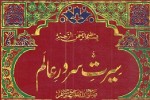
The Miracles of Prophets -2
17 May 2019 -
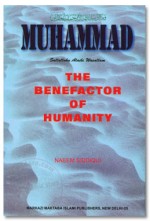
Muhammad (pbuh): The Benefactor of Humanity
08 March 2019 -
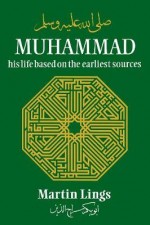
Muhammad his life based on the earliest source
08 March 2019 -
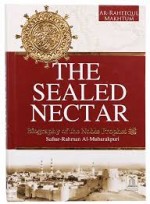
The Sealed Nectar
08 March 2019 -
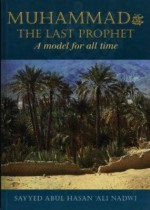
Muhammad The Last Prophet a model for all time
08 March 2019 -
Muhammad The Guide of Mankind
08 March 2019
